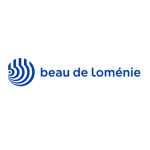The question of the protection of spare parts by designs has always been controversial.
Article 110 §1, i.e. the "repair clause", of Council Regulation (EC) n°6/2002 of 12 December 2001 on Community designs, excludes from protection as European design, component parts of a complex product, used to repair this product, to give it back its initial appearance.
On December 20 2017, the CJUE decided on article 110 §1 in respect of the manufacture and the commercialization by of wheel rims protected by European designs. The defendant, sued for infringement, asserted under article 110 §1, that no protection regarding those designs could be opposed against him. (Audi and Porsche joined cases C-397/16 and C-435/16)
For the Court, the shape of those parts does not need to be prescribed by the appearance of the complex product appearance they belong to.
Then parts such as wheel rims are concerned by article 110 §1 even if they can vary, depending on types and options available on a same vehicle.
These parts must be components, that can be replaced in order to allow the disassembly and reassembly of one product, and without which it could not be used normally.
They must be used for repairing a product that has become defective, and not for "pleasure or simple convenience".
The "repair clause" applies only to parts of a complex product, visually identical to the original parts. If this condition of identity is not met, the exclusive right of the design's owner may be infringed.
Finally, the Court suggests imposing a duty of information that manufacturers or sellers are not the owners of the designs and that the parts can only be used for repairing, to give back the original appearance of the product.
Aurélia Marie |
Cabinet Beau de Loménie
158, rue de l’Université
F - 75340 Paris Cedex 07 France
Tel: +33 1 44 18 89 00
Fax: +33 1 44 18 04 23











